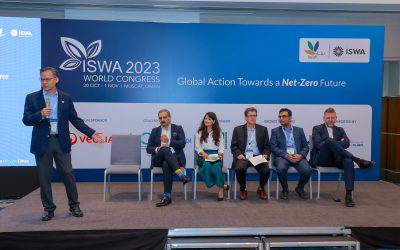The report offers consolidated data on MSW generation, collection, composition, and disposal by country and by region. In itself, this is an accomplishment because, as the report states, reliable global MSW information is either not available or incomplete, inconsistent, and incomparable.
The report notes that municipal solid waste management is the most important service a city provides. In low-income countries, MSW is often the largest single budget item for cities, and one of the largest employers. A city that cannot effectively manage its waste is rarely able to manage more complex services such as health, education, or transportation. Improving MSW is one of the most effective ways of strengthening overall municipal management.
The report shows that the amount of municipal solid waste is growing fastest in China (which surpassed the US as the world???s largest waste generator in 2004), other parts of East Asia, and part of Eastern Europe and the Middle East. Growth rates for MSW in these areas are similar to their rates for urbanization and increases in GDP. There is a direct correlation between the per capita level of income in cities and the amount of waste per capita that is generated. In general, as a country urbanizes and populations become wealthier, the consumption of inorganic materials (e.g. plastics, paper, glass, aluminium) increases, while the relative organic fraction decreases.
The authors of the report say an integrated solid waste management plan is needed in cities to approach solid waste in a comprehensive manner. Key to such a plan is consultation and input from all stakeholders, including citizen groups and those working on behalf of the poor and the disadvantaged. Public health and environmental protection aspects of any such plan are also critical.
The report also spells out policy recommendations for reducing greenhouse gas emissions, many of which emanate from inefficient solid waste management practices. Post-consumer waste is estimated to account for almost 5% of total global GHG, while methane from landfills represents 12% of total global methane emissions. The report says that a number of practical approaches could be applied in most cities, including:
- Public education to inform people about their options to reduce waste generation and increase recycling and composting;
- Pricing mechanisms (such as product charges) to stimulate consumer behaviour to reduce waste generation and increase recycling;
- User charges tied to the quantity of waste disposed of, with (for example) consumers separating recyclables paying a lower fee for waste disposal; and/or
- Preferential procurement policies and pricing to stimulate demand for products made with recycled post-consumer waste.
For a link to this interesting World Bank publication, click here: http://go.worldbank.org/BCQEP0TMO0


